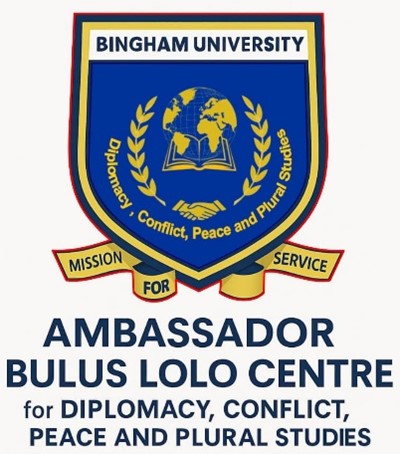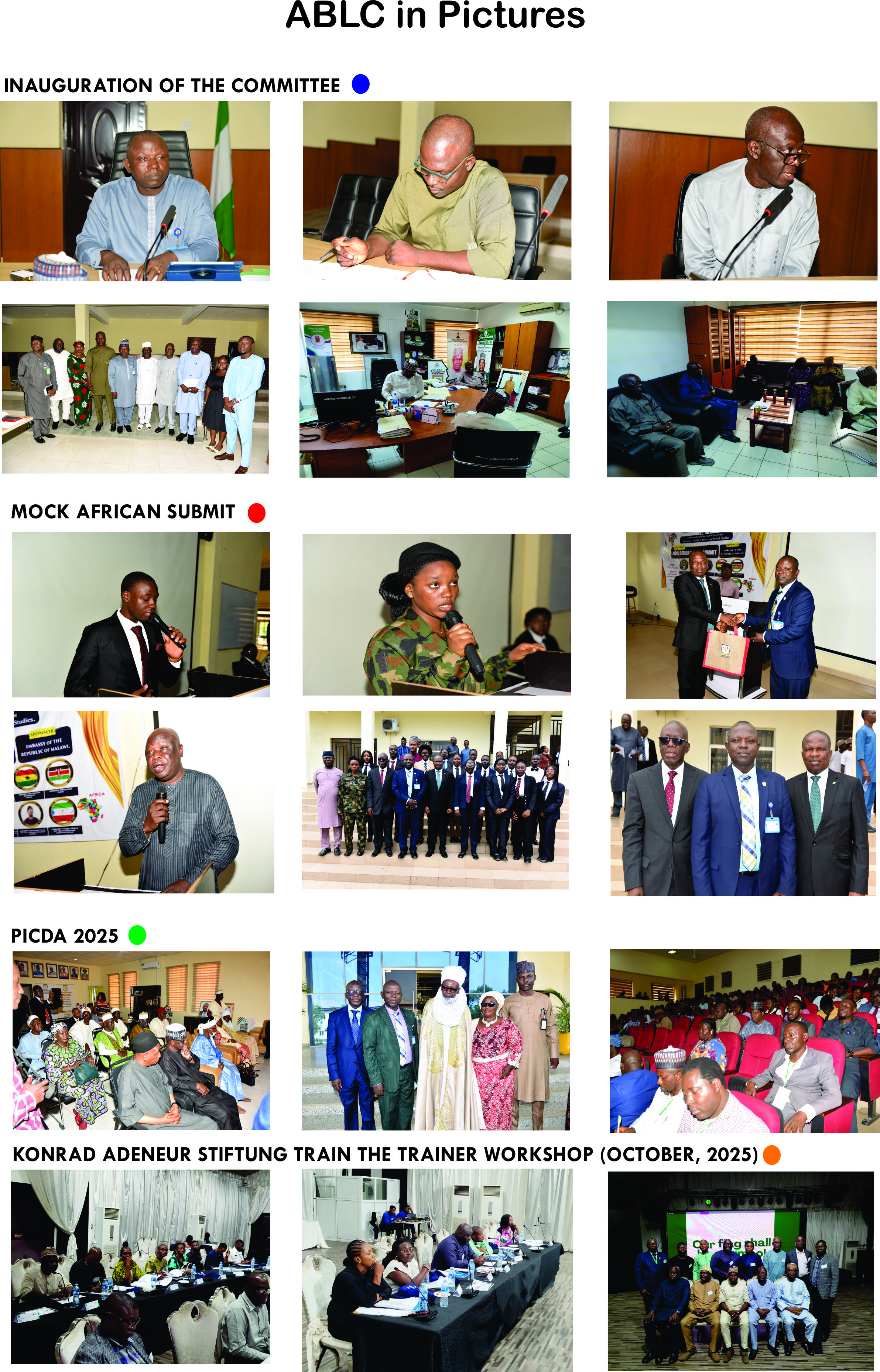THE GLOBAL DYNAMICS THAT NECESSITATED THE ESTABLISHMENT OF THE AMBASSADOR BULUS LOLO CENTRE FOR DIPLOMACY, CONFLICT, PEACE AND PLURAL STUDIES
The transition of African countries to liberal democracy after the Cold War commenced with the fall of the Berlin Wall and the Soviet Union's balkanization which marked the end of authoritarian rule, leading to a shift towards democratic governance in Africa. However, the challenges of liberal democracy in many African countries which struggle with prioritizing elections over good governance are evident in the disempowerment of the masses and increased conflicts. This has resulted in rising insecurity, conflicts, and inequality, with some countries experiencing violent resistance and revolutionary pressures.
The interplay between cultural diversity and political stability is complex, with many African nations grappling with identity-based conflicts and power struggles that impede national unity. In response to these challenges, Bingham University has established the Ambassador Bulus Lolo Centre for Diplomacy, Conflict, Peace and Plural Studies to promote international diplomacy, conflict mediation, and resolution, and provide solutions to Africa's contentious political, social, and economic challenges. This Centre aims to among others:
- Foster Research and Collaboration: Conduct cutting-edge research in peace and conflict studies and collaborate with national and international organizations.
- Develop Capacity: Offer academic programmes, training, and workshops to build capacity in conflict resolution, peace building, and diplomacy.
- Promote Community Engagement: Engage with local communities, governments, and stakeholders to promote peace and understanding.
By addressing the root causes of conflicts and promoting inclusive governance, the Ambassador Bulus Lolo Centre for Diplomacy, Conflict, Peace and Plural Studies hopes to contribute to Africa's development and stability.
Rationale for the Establishment of the Centre
As a Research, Training and Advocacy Centre, it will address the pressing need for innovative solutions to the complex conflicts, terrorism, and insecurity in Africa that have characterized the post-Cold War era. It will provide a platform for scholars, policymakers, and practitioners to come together and explore new approaches to diplomacy, conflict resolution, and peace building. By fostering interdisciplinary research and collaboration, the Centre would be able to:
- Advance our understanding of conflict dynamics: The Centre will conduct research on the root causes of conflicts, including the role of globalization, inequality, and cultural differences.
- Develop effective diplomacy and negotiation strategies: The Centre will explore new approaches to diplomacy and negotiation, including the use of technology and innovative communication strategies.
- Promote pluralism and diversity: The Centre will study the importance of pluralism and diversity in promoting peace and stability, and develop strategies to promote inclusive and equitable societies.
- Support peace building and conflict resolution: The Centre will provide training and capacity-building programmes for policymakers, practitioners, and community leaders to promote peace building and conflict resolution.
Anticipated Benefits of the Centre's Work
- Informing policy decisions: The Centre's research will provide policymakers with evidence-based solutions to address complex conflicts and security challenges.
- Promoting peace and stability: The Centre's work will contribute to promoting peace and stability in regions affected by conflict, and will help to build more resilient and inclusive societies.
- Fostering global cooperation: The Centre will facilitate international collaboration and knowledge sharing, promoting a more nuanced understanding of global challenges and opportunities.
Centre's Broad Strategies
The Centre will harness the power of research and collaboration to address the complex challenges of our time and build a more peaceful and stable world.
The Centre, being a research and advocacy platform on Diplomacy, Plural Studies, and Peace, has a critical role to play in addressing the challenges of liberal democracy in Africa, particularly in multi-ethnic societies.
Given the historical background of its establishment, the Centre will operate in a useful way by:
Vision
- Conducting context-specific research: The Centre will conduct research on the specific challenges of liberal democracy in African countries, including the role of ethnicity, communalism, and identity politics in shaping conflict dynamics.
- Developing inclusive and context-specific peace building strategies: The Centre will develop peace building strategies that take into account the unique cultural, historical, and social contexts of African countries.
- Promoting dialogue and negotiation: The Centre will facilitate dialogue and negotiation between different ethnic and communal groups, promoting understanding, tolerance, and cooperation.
- Capacity building for peace building: The Centre will provide training and capacity-building programmes for policymakers, practitioners, and community leaders to promote peace building and conflict resolution.
- Informing policy decisions: The Centre's research will inform policy decisions on issues related to conflict prevention, peace building, and post-conflict reconstruction.
- Promoting inclusive governance: The Centre can promote inclusive governance structures that recognize and respect the diversity of different ethnic and communal groups.
- Addressing structural inequalities: The Centre can identify and address structural inequalities that contribute to conflict, such as economic and social disparities.
- Fostering a culture of peace: The Centre can promote a culture of peace by encouraging values such as tolerance, empathy, and understanding.
- Supporting community-led peace initiatives: The Centre can support community-led peace initiatives that promote peace building and conflict resolution at the grassroots level.
A Centre of excellence for cutting-edge research, capacity building, advocacy on inclusiveness, development, diplomacy, peace building and plural studies.
Mission
The mission is to provide a platform for scholars, policymakers, experts and practitioners to come together and explore new approaches to diplomacy, conflict resolution, and peace building.
Core Values
Excellence, Innovativeness, Thoroughness, Effectiveness, Efficiency and Inclusivity.
Objectives
The objectives of the Centre include to, among others:
- Conduct multi-disciplinary research on diplomacy, conflict, identity politics, and pluralism, focusing on Nigeria, Africa and the global south.
- Provide capacity building in conferencing and conference diplomacy.
- Provide capacity in protocol and etiquettes.
- Research and knowledge.
- Advocacy and Policy Engagement.
- Capacity Building and Training.
- Collaboration and Partnership Development.
- Study the nature and character of ethnic cooperation and discord in the way they impact nation building in Africa.
- Examine how diplomacy can address conflict, crisis of integration and development in Africa.
- Develop mechanism for an in-depth understanding of cultural pluralism, political instability and crisis of governance and development in Africa.
- Provide intellectual forum for debates and intervention in addressing differences, conflicts; and managing peace process.
- Organize a yearly international conference (on political instability, and crises of development in Africa – PICDA) and seminars, roundtables, meetings, conferences and workshops, among others.
- Engage in joint projects, programmes and activities with other tertiary institutions and development partners, and donor agencies across Africa and beyond.
- Source funding from local and international institutions to sustain its various projects, programmes and activities.
- Provide consultancy services to governments, organizations and institutions in and around Africa.
- Publish proceedings of activities in books, journals and other periodicals.
- Advance research in areas of the Centre's focus.
- Capacity Building: Design and deliver capacity building programmes for diplomats, conflict resolution practitioners, scholars and civil society.
- Create Platforms for Dialogue: Foster a culture of dialogue and exchange among scholars, policy makers and practitioners.
- Evidence-Based Policy: Produce and disseminate evidence-based policy recommendations for governments, international organizations, civil society and other stakeholders.

